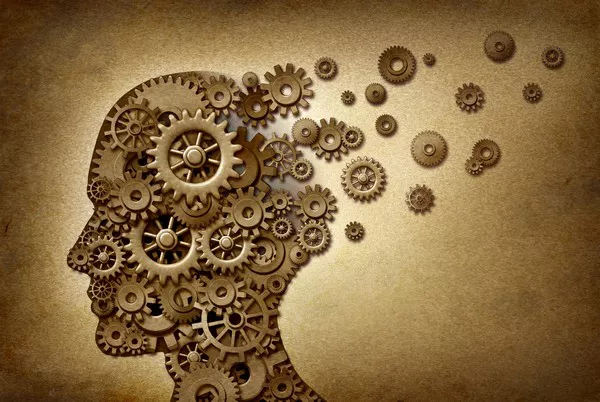As the end of the year approaches, people often sacrifice sleep in an effort to meet their hectic schedules. However, new research from the University of Michigan suggests that poor sleep alignment could significantly impact both mood and mental health, urging individuals to reconsider their sleep habits for better emotional well-being during the holiday season.
The study, published in npj Digital Medicine, reveals that when sleep cycles are misaligned with the body’s internal circadian rhythms, the effects on mood can be profound. Conversely, maintaining sleep patterns that align with the body’s natural rhythms could improve mood and potentially alleviate symptoms of mood disorders, according to the study’s senior author, Daniel Forger.
“This isn’t a cure for depression,” emphasized Forger, a professor in the Department of Mathematics and director of the Michigan Center for Applied and Interdisciplinary Mathematics. “But we can control this aspect of health—people’s sleep patterns and circadian rhythms—which can have a noticeable impact on their mood.”
Forger explained that while external factors like life events, genetics, and relationships are out of our control, adjusting sleep routines may offer a tangible way to enhance mental well-being.
Research Methods: Real-World Data from Interns
While the connection between sleep and mood has been widely acknowledged, most prior research has taken place in controlled environments. To bring the findings into the real world, Forger and his team turned to the Intern Health Study, which tracks hundreds of first-year medical interns. Funded by the National Institutes of Health, the study collects data on interns’ mood, sleep, and activity levels through fitness trackers such as Fitbits, along with routine surveys.
Using algorithms developed by the research team, the Fitbit data helped analyze interns’ circadian rhythms and sleep patterns. These measurements were then compared to daily mood surveys and quarterly depression screenings, providing valuable insights into the relationship between sleep misalignment and mental health.
Sleep Mismatch and Mental Health
Forger and his team found that when interns’ circadian rhythms and sleep cycles were out of sync, depression scores on the widely used Patient Health Questionnaire (PHQ-9) increased significantly—by an average of 2.5 points. “That’s clinically important,” Forger remarked.
However, the study also discovered that not all forms of sleep misalignment are equally harmful. Lead author Minki Lee, an undergraduate researcher and Goldwater Scholar, explained, “It’s not just about going to bed earlier—what matters is aligning your sleep schedule with your internal rhythms.”
Understanding the Body’s Rhythms
The research team measured three critical patterns of circadian rhythm: the central circadian clock in the brain, peripheral clocks in other body parts, and sleep cycles. Forger explained that the heart, for example, is aware of the time of day, preparing to be more active in the afternoon than at night due to its own peripheral circadian clock.
The findings indicated that a mismatch between the sleep cycle and the peripheral circadian clock negatively impacted mood. However, a more significant effect was observed when there was misalignment between the central circadian rhythm and sleep cycle—particularly in shift workers, whose sleep patterns were often dictated by their job schedules.
Shift Work and Depression Symptoms
The study found that the misalignment of the central circadian clock and sleep was strongly linked to worsened mood and depressive symptoms, including poor sleep quality, appetite changes, and even suicidal thoughts. “These disruptions have a significant effect on mental health,” said Dae Wook Kim, a co-author of the study. Kim, now an assistant professor at the Korea Advanced Institute of Science and Technology, noted that this research challenges previous assumptions about the uniform impact of circadian disruptions across different physiological systems.
Kim’s team hopes to apply their findings to other groups, such as students, older adults, and individuals with psychiatric conditions, to better understand how different rhythms interact and influence mental health.
The Role of Context in Sleep Disruptions
The researchers emphasized that context plays a key role in how sleep misalignment affects mood. Students may pull all-nighters or travelers may experience jet lag, yet these disruptions do not always result in significant mood changes. The study suggests that recognizing when circadian disruptions are impacting one’s mood—and knowing that rest may provide relief—can lead to better self-care practices, especially with the help of wearable technology.
“That’s why this research is scalable,” Forger concluded. “With the technology we have today, this could help millions of people improve their sleep and, in turn, their mental health.”
This groundbreaking study underscores the importance of aligning sleep with the body’s natural rhythms and demonstrates the potential for wearable devices to play a significant role in improving mental well-being.
You Might Be Interested In:
-
Penn Engineers’ Breakthrough in Preeclampsia Treatment: A Ray of Hope for Pregnant Women
-
$12.5 Million Study to Revolutionize Postpartum Blood Pressure Management
-
Cesarean Deliveries During Labor: Potential Risks for Future Pregnancies

